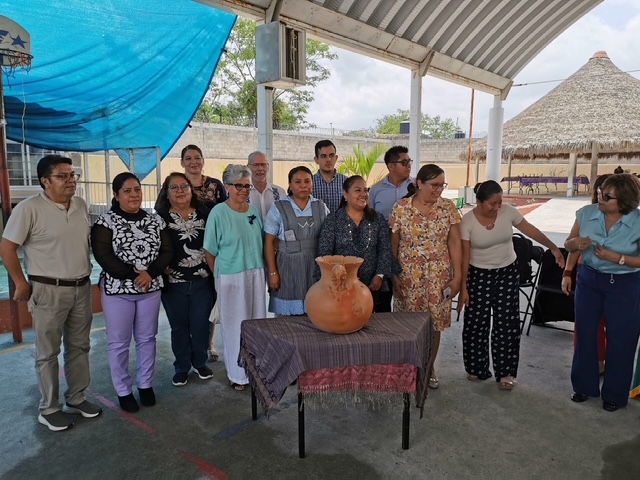
More than five years after the Mexico-Canada Sustainable Campuses Initiative wrapped up in 2019, its impact and friendships continue to thrive. In June, Dawson College faculty member Gisela Frias (Geography) and Chris Adam (retired Head of Sustainability) traveled to Mexico to represent Dawson at the 5th Binational Forum on Institutional Memory and Sustainability: Seeds of Yesterday, Fruits of Tomorrow. Both played central roles in the original initiative, which fostered international collaboration on sustainability in higher education.
Reuniting and Reflecting
The Forum was an opportunity for former partners to reconnect, share lessons learned, and strengthen ties among institutions committed to transformative education and sustainability. Discussions centered on the role of institutional memory in shaping a sustainable future.
"In the face of policies that seek to defund or delegitimize their critical role, there is an urgency to defend what has been achieved and to move forward with even greater resolve," said Gisela on the Forum's opening day.
She emphasized that Dawson's involvement in the project underscored how sustainability is inseparable from equity: "Dawson deepened its awareness of climate justice, recognizing how institutions in the Global North have a responsibility to build partnerships that acknowledge unequal impacts of climate change. Students at Dawson gained perspectives and solutions from contexts beyond their own."
Building Bridges Since 2012
The Sustainable Campuses Initiative began in 2012, rooted in relationships Gisela had formed during her doctoral studies in Mexico with environmental educators. Together, Dawson and several post-secondary institutions in the Mexican state of Morelos launched partnerships to share knowledge on making campuses more sustainable.
The initiative engaged students, professors, administrators, and communities, resulting in more than 30 campus sustainability projects. Highlights included:
- A board game that brings together members of an educational community to explore sustainability issues and find collective solutions.
- An e-book sharing the perspectives of students, teachers, and administrators on advancing environmental and social change.
Over time, partners included Ciudades Verdes S.C., Universidad Politécnica del Estado de Morelos, Universidad Pedagógica Nacional, and the Preparatoria Comunitaria de Tres Marías. The project was largely funded by international mobility and research programs, with major support from the Social Sciences and Humanities Research Council (SSHRC).
Youth Perspectives and Community Roots
One of the Forum's highlights was the panel Youth for Change: The Student Vision of Sustainability, where students and alumni from three schools discussed their experiences as change agents. Their testimonies demonstrated how participation in sustainability initiatives shaped their personal, professional, and political journeys.
The closing day was held at the Miguel Othón de Mendizábal Indigenous Elementary School in Cuentepec, a Nahua community. The celebration highlighted Indigenous traditions, literature, and collaboration. A bilingual Nahuatl-Spanish children's book, A Vase with a Long History, which documents traditional pottery-making practices, was presented to a delighted audience of schoolchildren.
"Their curious eyes and active participation reminded everyone that education for sustainability takes root most deeply in childhood, nourished by stories that cultivate identity and belonging," Gisela said.
Continuing the Collaboration
The Forum underscored that sustainability is not confined to campuses or classrooms. It also grows through stories, relationships, traditional knowledge, and cultural practices.
"All the institutional partners want to continue working together," Gisela explained. "We would love to create opportunities for student exchanges and internships so students can share different visions of sustainability. While funding is a challenge in the current context, we are committed to finding ways to keep our partnerships alive."
Looking ahead, Gisela Frias and partner researcher Luisa Montes are preparing an academic article to share their findings from the initiative, focusing especially on how institutional memory shapes sustainability work across borders.










